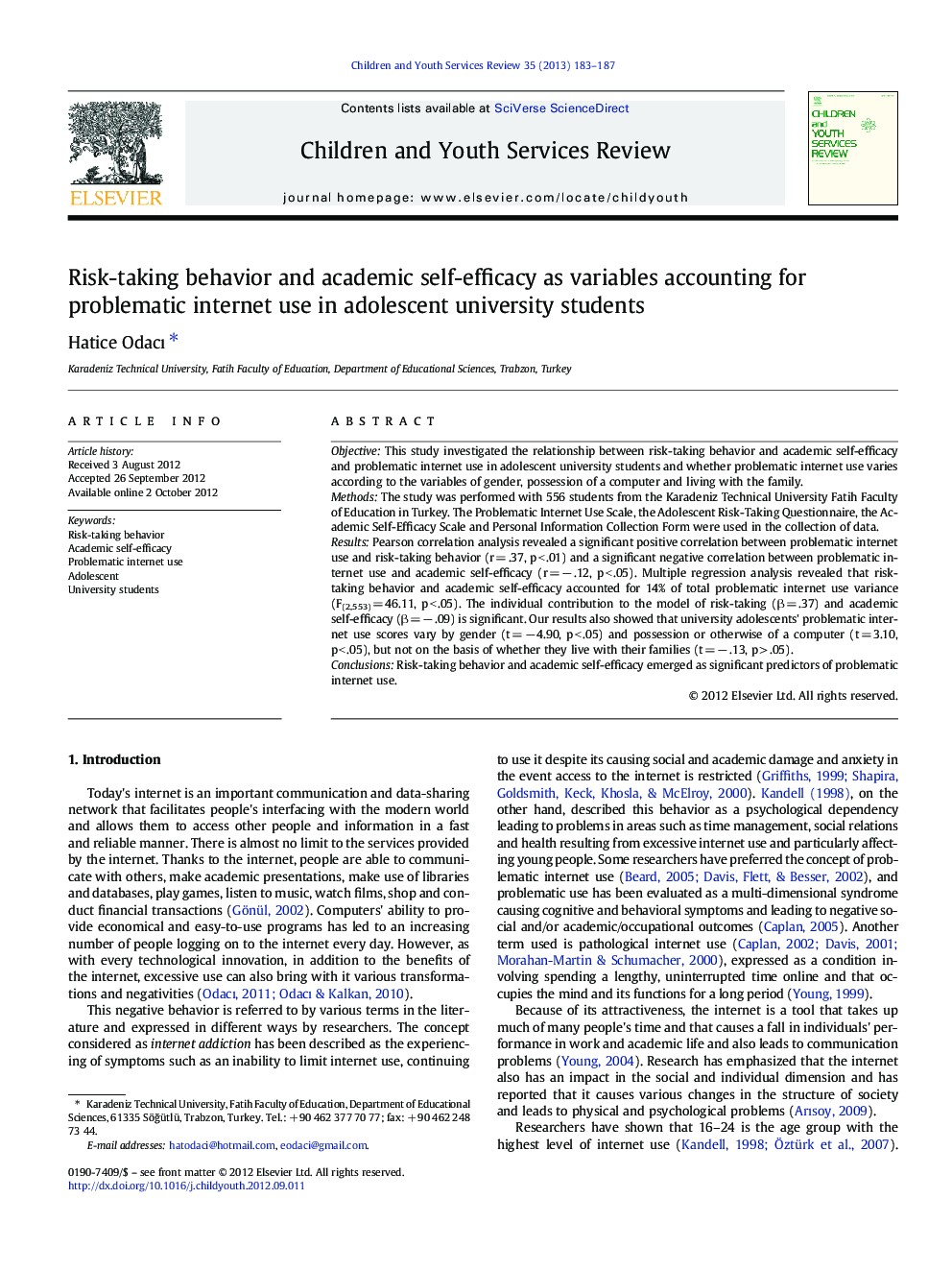| Article ID | Journal | Published Year | Pages | File Type |
|---|---|---|---|---|
| 346629 | Children and Youth Services Review | 2013 | 5 Pages |
ObjectiveThis study investigated the relationship between risk-taking behavior and academic self-efficacy and problematic internet use in adolescent university students and whether problematic internet use varies according to the variables of gender, possession of a computer and living with the family.MethodsThe study was performed with 556 students from the Karadeniz Technical University Fatih Faculty of Education in Turkey. The Problematic Internet Use Scale, the Adolescent Risk-Taking Questionnaire, the Academic Self-Efficacy Scale and Personal Information Collection Form were used in the collection of data.ResultsPearson correlation analysis revealed a significant positive correlation between problematic internet use and risk-taking behavior (r = .37, p < .01) and a significant negative correlation between problematic internet use and academic self-efficacy (r = − .12, p < .05). Multiple regression analysis revealed that risk-taking behavior and academic self-efficacy accounted for 14% of total problematic internet use variance (F(2,553) = 46.11, p < .05). The individual contribution to the model of risk-taking (β = .37) and academic self-efficacy (β = − .09) is significant. Our results also showed that university adolescents' problematic internet use scores vary by gender (t = − 4.90, p < .05) and possession or otherwise of a computer (t = 3.10, p < .05), but not on the basis of whether they live with their families (t = − .13, p > .05).ConclusionsRisk-taking behavior and academic self-efficacy emerged as significant predictors of problematic internet use.
► Risk-taking behavior is a significant predictor of problematic internet use. ► Academic self-efficacy is a significant predictor of problematic internet use. ► University adolescents' problematic internet use scores vary by gender.
